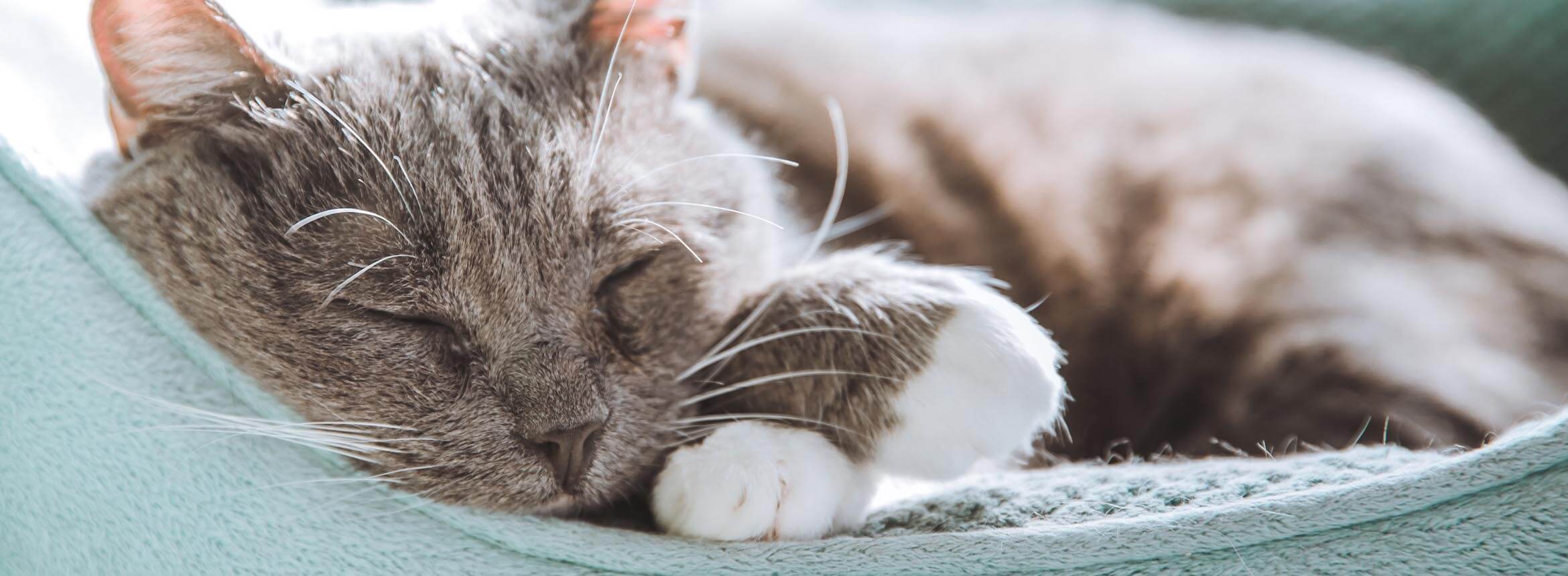Cloudy eyes. Decreased thirst. Drop in appetite. Loss of agility. These signs of aging are common in older felines. Like humans, your mature cat will need some adjustments to her diet and lifestyle to continue to thrive throughout all of her nine lives. See how you can help her thrive and enjoy a good quality of life with these tips.
Home Adjustments
1. Raise feeding and drinking bowls
Cats might not show it but arthritis pain, especially in the neck area, is common. If your older feline has trouble accessing her bowl on the floor, get her an elevated bowl. Or put her bowls on a platform.
2. Add water stations and litter boxes
Older cats are prone to dehydration. The more access to fresh water your elder kitty has, the more you increase her opportunities to hydrate. One per floor of your home is ideal. The same “more is better” principle goes for her litter box — make sure it’s easy for your older cat to get in and out of, and place one per floor.
Tip: To prevent accidents, place your pal’s bed and litter box in the same room, but don’t place them too close together.
3. Ramps, lower perches, and skipping the stairs
If your elder feline has mobility issues, add ramps so she can still access the windowsills, cat condos, and secret aeries she loves. You can also add perches at lower heights that allow her viewing opportunities without a lot of high jumping — think ottomans, low padded shelves, or stools.
Tip: Your aging feline may find stairs harder to navigate — consider blocking access to them with baby gates or adding ramps if stairs are unavoidable.
4. Upgrade her bedding
Some older cats may develop muscle loss and arthritis as they age and would appreciate a cushier place to catnap. Swap out her current bed for a soft, orthopedic bed that will comfortably support her joints. A heating pad can also add warmth to her favorite resting and perching spots (make sure it’s pet approved to avoid burns). Want an easy way to add natural warmth to her snoozing spots? Place her bed near a window, where it can catch some sunlight.
Lifestyle Adjustments
1. Adapt her exercise
Keeping your mature cat moving can help relieve some of the pain and discomfort of arthritis. Try short play sessions with her favorite toys (at least ten minutes a day). To keep her mind sharp, try cat puzzles or spread her dry kibble around a room to encourage her hunting instincts.
2. Adjust your senior cat’s diet
An older cat doesn’t require the same amount of food or number of calories as when she was a younger cat. Switching to a formula for senior cats with reduced calories can help with weight control. Many of these recipes also contain healthy fatty acids like omega-3s, which can help support her joints if she suffers from arthritis. Your veterinarian is your best friend when it comes to keeping your mature cat healthy and can offer more diet, exercise, and lifestyle advice.
Your favorite feline may not show her appreciation, but you can feel good knowing you’re an on-top-of-it Pet Parent.

